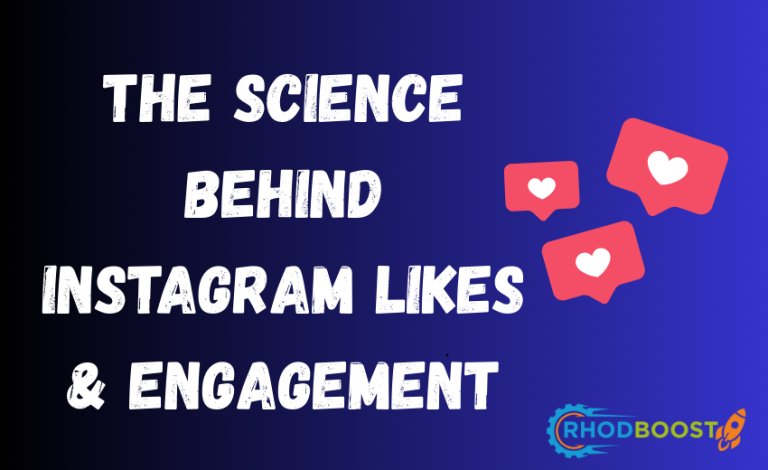Social Media Controversies Making Headlines This Week
Introduction
Social media has become the new age town square — a place where opinions collide, voices rise, and controversies unfold in real-time. From celebrities and influencers to political figures and anonymous accounts, no one is immune from the scrutiny, backlash, or unexpected fame that comes with being online. Each week brings a fresh wave of digital storms, and this week has been no exception.
India’s digital culture in particular has witnessed a series of controversies that have not only trended across Twitter, Instagram, and YouTube but have also stirred nationwide debates. As content creators, musicians, influencers, and public figures continue to use social platforms for visibility and engagement, the cost of visibility seems to be growing just as rapidly.
This week’s headlines reflect the volatility of the online world, where even a single comment or post can snowball into a national issue. Below is a roundup of the most notable social media controversies making waves right now, with insight into what triggered them, how the public reacted, and what this says about digital culture in India today.
1. Reem Shaikh and the Flight Crash Comment Uproar
One of the biggest storms this week involved television actress Reem Shaikh, who came under fire after being recorded making a seemingly unaware comment about the recent Ahmedabad plane crash. Social media users accused her of being insensitive, tone-deaf, and disconnected from real-world tragedies.
The criticism intensified rapidly, with hashtags calling her out trending across Instagram and X. Reem later issued a clarification, revealing that her sister is an Air India pilot and that the event hit closer to home than the internet could imagine. Still, the damage had been done. The viral backlash highlighted how public figures are often judged by the smallest missteps, and how quickly public opinion can shift.
This controversy points to a broader problem: in an age of viral moments, context often gets lost, and the court of public opinion rarely waits for the full story.
2. Govind Namdev Ends Association Over Ageist Remark
Veteran actor Govind Namdev also found himself at the center of online headlines when his co-star Shivangi Verma allegedly made an ageist remark: “Buzurg sathiya jaate hain.” Instead of brushing it off, Namdev took a firm stand and publicly announced that he would no longer work with her due to her disrespectful attitude.
The incident sparked debate online. Some praised Namdev for standing up against age-based disrespect, especially in the entertainment industry, where youth is often over-glorified. Others felt the matter could have been resolved privately. Regardless, the moment made it clear that the elderly deserve more than just token respect in professional spaces.
It also showcased the power of social media to hold people accountable — not just through trolls, but through formal decisions and public statements.
3. Influencer Threatened Over Astrology Content
In a chilling revelation, an Indian woman came forward claiming that she was threatened by the same group responsible for the recent murder of astrology influencer Kanchan Tiwari, also known as Kamal Kaur Bhabhi. According to her, she was targeted for sharing astrology videos and predictions online.
This wasn’t just a digital argument — it became a security issue. The woman requested police protection for herself and her family, stating that the threats had escalated beyond social media harassment.
This incident throws light on a dark side of influencer culture. While many create content out of passion or expertise, they often become soft targets for those with ideological or moral objections. In a country where traditional and digital beliefs often clash, even a simple astrology post can become a life-threatening controversy.
4. Kalpika Ganesh Faces Cybercrime Case
Actor and influencer Kalpika Ganesh made headlines this week for all the wrong reasons. The Hyderabad-based content creator has been booked by the cybercrime police for alleged online harassment. The case involves sending abusive voice notes and defamatory content to a pub owner and her family, apparently following a disagreement over service.
Kalpika had previously streamed parts of her altercation live on social media, portraying herself as a victim. However, as more evidence came forward, public opinion began to shift. While many still supported her stance against bad service, others criticized the way she publicly humiliated others.
This controversy is a reminder of how digital drama often starts with real-world disagreements, and how the choice to go live or share private disputes online can backfire.
5. Fake Temple Websites and the High Court’s Intervention
Away from individual celebrities and influencers, an institutional controversy has also surfaced this week. The Kerala High Court issued a strong warning against fake social media accounts and websites posing as official religious platforms to collect money from unsuspecting devotees.
The court instructed the Cochin Devaswom Board to maintain strict vigilance and take legal action against such fraudsters. This follows a rising number of complaints about cloned pages using emotional and religious content to extract donations from followers online.
This is a stark reminder that not all social media controversies are loud or visual — some are built quietly through fraud, deception, and digital exploitation. And while these cases may not involve celebrities, they affect the average user just as deeply.
The Bigger Picture: Why Social Media Is Always on Edge
What do all these cases have in common? They reflect a larger truth — social media is a high-risk, high-reward environment. The benefits of visibility, reach, and virality come at the cost of intense scrutiny and public reaction.
Some controversies emerge from genuine mistakes. Others are created through intentional provocations, misjudged humor, or outright malicious behavior. But in all cases, the consequences are swift and far-reaching.
Here’s why social media is particularly fertile ground for these blowups:
- Speed of Spread: A post can go viral in minutes.
- Lack of Context: Clips and quotes are often taken out of their original setting.
- Mob Reactions: Trends can turn into online attacks without fair trial or investigation.
- Algorithmic Fuel: Controversial content often performs better in terms of engagement.
How Users and Platforms Can Respond
With such a high volume of daily outrage and controversy, both creators and platforms need better systems for navigating online discourse. Here are a few solutions worth considering:
- Pre-post Reviews: Creators should consult trusted peers before publishing sensitive content.
- Contextual Captions: Adding backstory or reasoning can prevent misunderstandings.
- Platform Moderation: Websites like Instagram, X, and YouTube need stronger systems to identify when something is escalating.
- Community Reporting: Empowering users to flag not just abuse, but misinformation and fraud, can limit damage early.
Conclusion
This week’s social media controversies reveal a digital culture that is vibrant, passionate, and often explosive. From celebrities to everyday creators, anyone can become the center of national attention in a matter of hours. The internet has become a space where opinions and identities collide — sometimes for good, often with consequences.
As platforms like Lyricsbaazaar.com document these stories alongside music, lyrics, and culture, it’s vital to remember that the internet is not just a mirror of society — it shapes it. Being conscious of what we post, how we react, and where we draw the line is more important than ever.Let this week’s headlines be a wake-up call. Social media is powerful — and with that power comes real-world responsibility.






